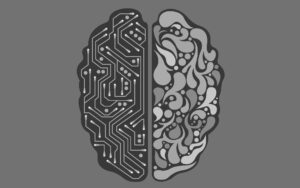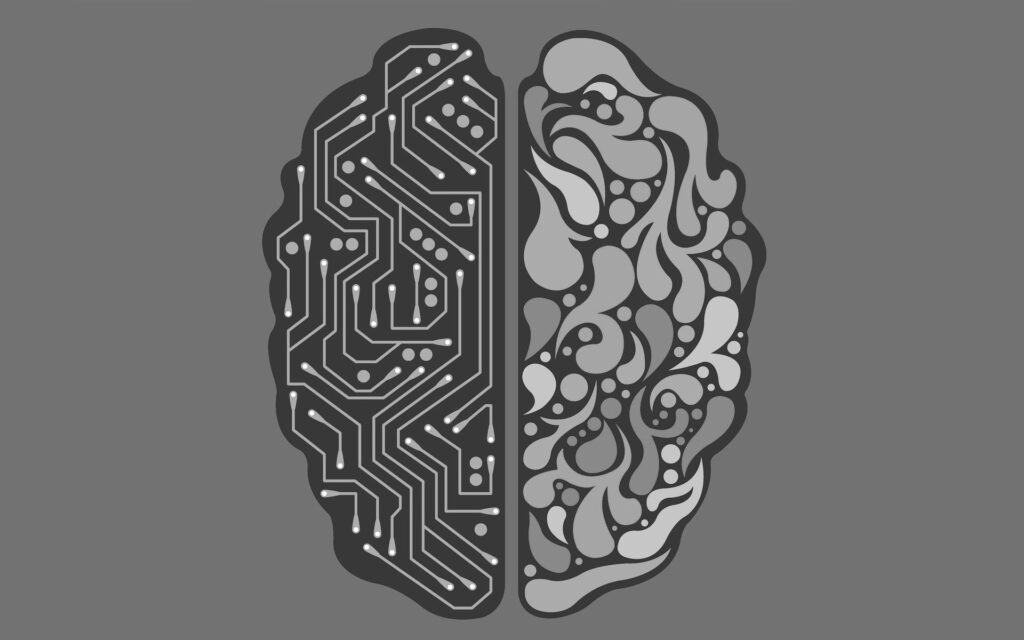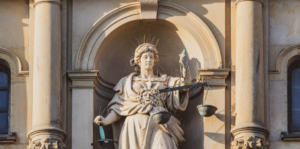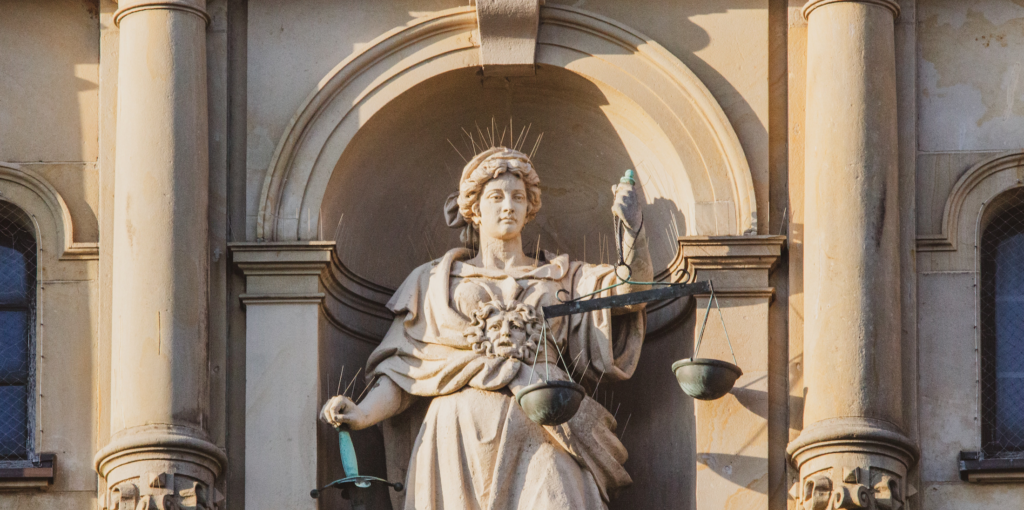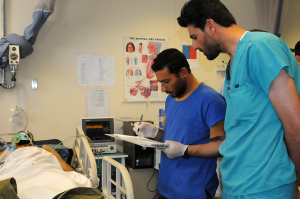John C. Fresco
On August 8, 2023, ESPN announced a ten-year, $2 billion agreement with PENN Entertainment[1] to launch ESPN BET, an ESPN-branded sportsbook that will grant access to online sports betting in the sixteen legalized betting states where PENN Entertainment is licensed.[2] ESPN is the world’s leading sports platform with eight US television networks, the leading sports app, streaming platform, ESPN+, and premiere sports social media platforms.[3] In 2022, the brand expanded its total paid subscribers by forty-two percent to an audience of 24.3 million, averaged 106.7 million unique visitors per month to its digital platforms, and led the sports media category in fan engagement for the year with 6.8 billion interactions across its social media channels.[4]
In its agreement with PENN Entertainment, ESPN now has the ability to leverage its industry-leading multi-platform reach with the product operations and expertise of PENN Entertainment, a company with the “largest and most diverse gaming footprint in North America.”[5] PENN Entertainment is a global provider of “integrated entertainment, sports content, and casino gaming experiences.”[6] According to Jimmy Pitaro, Chairman of ESPN, “PENN Entertainment is the perfect partner to build an unmatched user experience for sports betting.”[7] Since entering this agreement, PENN Entertainment CEO, Jay Snowden, said in an earnings call that the expectation is for PENN Entertainment to immediately grab a twenty percent market share of the sports betting market with the addition of ESPN branding and integration.[8]
Prior to its agreement with PENN Entertainment, ESPN had progressively been filling its programing with advertising from sports betting companies like DraftKings, PointsBet, and FanDuel,[9] and launching new sports betting programs, such as Daily Wager and Bet with Erin Dolan.[10] ESPN had also been integrating sports betting into some of their iconic programs, including College Gameday, with segments such as “Bear’s Picks” with sports betting analyst Chris “The Bear” Fallica and “Winners” with SportsCenter anchor Scott Van Pelt.[11] While this agreement may appear to be a tremendous opportunity for two companies to remedy their downward trajectories,[12] it also presents a potentially contentious conflict of interest:[13] ESPN produces “the sports on which betting occurs”[14] and PENN Entertainment “facilitate[s] … betting by the general public.”[15] This new agreement raises questions in two key areas: potential antitrust violations[16] within the sports data market[17] and ESPN’s ethical obligations to sports journalism[18] and its shareholders’ interests.[19]
Sports gambling has been prevalent as long as sports have existed.[20] While sports betting in the modern era has always relied on game results to determine winners and losers, the more recent technological accessibility to online betting platforms has created a demand for faster data.[21] In order to maximize profits, “sportsbooks rely on sports data companies to collect, process, monitor, and deliver data.”[22] Off the field, analysts, commentators, and fans use data constantly in a multitude of ways, from sports betting to game predictions.[23] For a long time, data analysts were disliked by coaches and front offices because they represented a new approach to organizational management; however, it is now common for data analysts to populate sports teams and media staffs.[24]
Today, ESPN serves as one of the premiere sports data experts with 4,600 worldwide employees, including the predominant sports insiders in all major sports.[25] ESPN employees and professional sports league insiders like Adam Schefter, Adrian Wojnarowski, and Jeff Passan have the means to directly impact odds and betting markets with a single social media post.[26]
For example, ESPN’s leading NBA insider, Adrian Wojnarowski dramatically impacted the sports betting lines for the 2022 NBA rookie draft with just two tweets to his five million followers on Twitter.[27] Approximately twelve hours before the first pick, Wojnarowski reported that, per sources, the first, second, and third picks of the NBA Draft were likely to be, “Jabari Smith to Orlando, Chet Holmgren to Oklahoma City, and Paolo Banchero to Houston.”[28] The sports gambling world immediately reacted to this information as bettors changed their bets and sportsbooks adjusted their betting lines, resulting in a dramatic shift in Banchero’s, the previous expected top pick’s, odds.[29] Yet just a few minutes before the first pick, Wojnarowski reported live on television that Banchero was once again the front-runner for the first pick, and he inevitably was.[30] This change in information dramatically hurt the majority of bettors as over twenty percent of all wagered money was on Smith to be drafted first, due in large part to Wojnarowski’s initial report.[31] This event from the 2022 NBA Draft highlights the potential financial impact of ESPN insiders’ ability to artificially generate profits for ESPN.[32]
In light of the ESPN and PENN agreement, has there been a violation of antitrust law? The current answer is no; however, as the agreement begins to take shape, and ESPN BET is officially launched, the question will certainly remain.[33] Generally, antitrust laws preserve fair market conditions and protect consumers against “unfair or deceptive acts or practices.”[34] As demonstrated by Adrian Wojnarowski’s impact on the 2022 NBA Draft betting market, ESPN insiders certainly have the capacity to manipulate betting market conditions through a single report.[35] Now, through their strategic partnership, ESPN and PENN have the capacity to profit significantly on similar market shifts.[36]
Regardless of whether the agreement violates antitrust law, a subsequent question emerges regarding the duties of a media agency to ensure ethical journalism over shareholder profits.[37]
Constitutional rights that protect freedom of speech make it nearly impossible to impose a standard of ethics or professional protocols for journalists.[38] Consequently, there is no uniform system in journalism for enforcing ethical behavior.[39] Nonetheless, journalists generally adhere to standards of professionalism.[40] and are subjected to the pressures of meeting expectations of employers and advertisers.[41] As a media outlet, ESPN is not exempt from these pressures.[42]
Furthermore, as a subsidiary of the Walt Disney Company, a publicly traded company, ESPN has the additional pressure of meeting the expectations of shareholders.[43] This pressure seemingly hit a boiling point this past summer when Disney CEO, Bob Iger, discussed the possibility that the Walt Disney Company might considering selling their interest in ESPN if they were unable to find “a new strategic partner that can either help [ESPN] with distribution or content.”[44] While once a cash cow for Disney, ESPN had become an economic burden due to cable companies paying less for ESPN broadcasts and ESPN paying higher fees for the exclusive broadcast rights of major league sports.[45] ESPN eventually responded to this pressure by laying off approximately twenty percent of its television personalities in an attempt to manage costs and hit its financial targets.[46]
So, how does ESPN balance its ethical obligations as a media outlet and its obligations to shareholders to maximize profits? In Dodge v. Ford Motor Co., the Michigan Supreme Court held that:
“A business corporation is organized and carried on primarily for the profit of the stockholders. The powers of the directors are to be employed for that end. The discretion of directors is to be exercised in the choice of means to attain that end, and does not extend to a change in the end itself, to the reduction of profits, or to the non-distribution of profits among stockholders in order to devote them to other purposes.”[47]
The Delaware Supreme Court made a similar pronouncement in Revlon v. MacAndrews & Forbes Holding.[48] Applying Dodge and Revlon, courts have unequivocally endorsed the notion that corporations have an obligation to maximize profits without regard to consideration of other groups.[49] In accordance with these decisions, ESPN and PENN Entertainment likely have an obligation to utilize their insiders and data to maximize the profits of ESPN BET.
An alternative school of thought stems from the 2020 Davos Manifesto.[50] In an attempt to improve corporate governance and corporation’s fiduciary responsibilities, the World Economic Forum proposed “[t]hat the purpose of a company is to engage all its stakeholders in shared and sustained value creation.”[51] In creating such value, a company serves not only its shareholders, but all its stakeholders – employees, customers, suppliers, local communities and society at large.[52] Under this approach, “[t]he best way to understand and harmonize the divergent interests of all stakeholders is through a shared commitment to policies and decisions that strengthen the long-term prosperity of a company.”[53]
Ultimately, there does not appear to be clear guidance governing how ESPN’s directors will balance the interests of their shareholders and the interests of their customer base.[54] Each of the two competing schools of thought—that outlined by Dodge and Revlon and that proposed by the World Economic Forum—have their own merits.[55] The decision will ultimately come down to one of public perception and whether ESPN can maximize its profits without alienating the public.
The creation of ESPN BET through the partnership of ESPN and PENN Entertainment unifies one of the nation’s largest online betting platforms[56] with the global leader in sports data.[57] Accordingly, the new platform has the capability to monopolize sports insider information[58]. With this information—and at the risk of anti-trust violations[59]–ESPN may withhold or deceptively report sports information in a manner to direct bettor behavior.[60] By effectively controlling betting behavior through such control over data and media coverage, ESPN would be able to maximize their profits for their shareholders.[61] However, with such power comes tremendous responsibility, and ESPN will have to balance the interests of its other stakeholders with the interests of its shareholders to obtain an equitable outcome for its agreement.
[1] David Ramsey et al., Can ESPN Crack Betting Market, Front Office Sports (Aug. 9, 2023), https://frontofficesports.com/newsletter/can-espn-crack-betting-market/.
[2] John R. Manzo, ESPN to Launch ESPN BET in a New Agreement with PENN Entertainment, ESPN Press Room (Aug. 8, 2023), https://espnpressroom.com/us/press-releases/2023/08/espn-to-launch-espn-bet-in-a-new-agreement-with-penn-entertainment/.
[3] ESPN, ESPN, Inc. Fact Sheet, ESPN Press Room (Aug. 2, 2023), https://espnpressroom.com/us/espn-inc-fact-sheet/.
[4] ESPN, ESPN, Inc.: 2022 in Review, ESPN Press Room (2022), https://espnpressroom.com/us/2022-yir/.
[5] PENN Entertainment, About PENN Entertainment, PENN Entertainment, https://www.pennentertainment.com/.
[6] Press Release, PENN Entertainment, PENN Entertainment and ESPN Enter into Long-Term Exclusive Strategic Alliance for U.S. Online Sports Betting (Aug. 8, 2023), https://www.pennentertainment.com/corp/corp/-/media/project/png-tenant/corporate/png-corp/PENN-ESPN-FINAL%208-8-23.
[7] See Manzo, supra note 2.
[8] Erich Richter, Why Penn National Doubling Down on ESPN Bet is so Risky, New York Post (Aug. 10, 2023, 2:10 PM), https://nypost.com/2023/08/10/why-penn-national-doubling-down-on-espn-bet-is-so-risky/.
[9] Karen Weaver, ESPN’s $2 Billion Deal with PENN Entertainment Creates New Challenges for College Athletics, Forbes (Aug. 11, 2023, 9:43 AM), https://www.forbes.com/sites/karenweaver/2023/08/11/espns-2-billion-deal-with-penn-entertainment-creates-new-challenges-for-college-athletics/?sh=2650f1fe3368.
[10] John R. Manzo, ESPN Expands Sports Betting Content Portfolio, ESPN Press Room (Sept. 8, 2022), https://espnpressroom.com/us/press-releases/2022/09/espn-expands-sports-betting-content-portfolio/.
[11] Id.
[12] Tomi Kilgore, Penn National Stock has Fallen Far Enough for Defiantly Bearish Deutsche Bank Analyst to Stop Saying Sell, MarketWatch (Nov. 12, 2021, 3:01 PM),
[13] William Skipworth, ESPN Gambling Deal Faces Criticism Of Conflict Of Interest, Forbes (Aug. 9, 2023, 1:40 PM), https://www.forbes.com/sites/willskipworth/2023/08/09/espn-gambling-deal-faces-criticisms-of-conflict-of-interest/?sh=6f1b0bb676c9.
[14] Mike Florio, Report: Penn National Will Pay ESPN $1.5 Billion Over 10 Years for “ESPN BET”, NBC Sports (Aug. 8, 2023, 11:54 PM), https://www.nbcsports.com/nfl/profootballtalk/rumor-mill/news/report-penn-national-will-pay-espn-1-5-billion-over-10-years-for-espn-bet.
[15] Id.
[16] Federal Trade Commission, The Antitrust Laws, Federal Trade Commission, https://www.ftc.gov/advice-guidance/competition-guidance/guide-antitrust-laws/antitrust-laws.
[17] Marc Edelman & John T. Holden, Monopolizing Sports Data, 63 Wm. & Mary L. Rev. 97 (2021).
[18] Michael McCarthy, Moving The Lines: How Will ESPN Insiders Play Into ESPN Bet?, Front Office Sports (Aug. 8, 2023, 7:47 PM), https://frontofficesports.com/moving-the-lines-how-will-espn-insiders-play-into-espn-bet/.
[19] Evan Bleier, ESPN’s Gambling Pivot Compromises Even More of Its Integrity, InsideHook (Aug. 9, 2023, 11:50 AM), https://www.insidehook.com/daily_brief/sports/espns-sportsbook-pivot-compromises-more-integrity-barstool.
[20] See Edelman & Holden, supra note 17,at 96.
[21] Id.
[22] See Florio, supra note 14.
[23] Alyssa Schroer & Matthew Urwin, How Sports Analytics Are Used Today, by Teams and Fans, built in (Aug. 16, 2022, https://builtin.com/big-data/big-data-companies-sports.
[24] Id.
[25] See Manzo, supra note 3.
[26] See Florio, supra note 14.
[27] Ben Strauss, How a ‘Woj Bomb’ Blew up NBA Draft Lines and Cost Bettors, Washington Post (June 29, 2022, 4:30 AM), https://www.washingtonpost.com/sports/2022/06/29/nba-draft-betting-woj/.
[28] Adrian Wojnarowski (@wojespn), Twitter (June 23, 2022, 8:41 AM), https://twitter.com/wojespn/status/1539951821405429761.
[29] See Manzo, supra note 3.
[30] Id.
[31] Id.
[32] See Florio, supra note 14.
[33] Peter Foye, Thomas Mitchell, Abigail Singley, & Melissa Jameson, Sports Betting and AML – Don’t Gamble on Compliance, PWC (Sept. 2019), https://www.pwc.com/us/en/industries/financial-services/library/pdf/pwc-sports-betting-and-aml.pdf.
[34] See Federal Trade Commission, supra note 16.
[35] See Florio, supra note 14.
[36] See Manzo, supra note 10.
[37] See Ramsey et al., supra note 1.
[38] Purdue Online Writing Lab, Media Ethics, Purdue University, https://owl.purdue.edu/owl/subject_specific_writing/journalism_and_journalistic_writing/media_ethics.html.
[39] Id.
[40] Id.
[41] David Ingram & Peter Henshall, Chapter 58: Pressures on Journalists, The News Manual (2019), https://thenewsmanual.net/Manuals%20Volume%203/volume3_58.htm.
[42] Aditya Shastri, Complete Marketing Strategy of ESPN – A Detailed Analysis, IIDE (July 30, 2022), https://iide.co/case-studies/marketing-strategy-of-espn/.
[43] See ESPN, supra note 3.
[44] Samrhitha Arunasalam & Pooja Desai, Disney Wants to Keep ESPN, Could Offload Some Traditional TV Assets, Iger Says, Reuters (July 13, 2023, 11:49 AM), https://www.reuters.com/business/media-telecom/disney-wants-keep-espn-will-look-strategic-partners-ceo-iger-2023-07-13/.
[45] Id.
[46] See Manzo, supra note 10.
[47] Dodge v. Ford Motor Co., 170 N.W. 668 (Mich. 1919).
[48] Lisa M. Fairfax, Business Organizations: An Integrated Approach 79 (Robert C. Clark et al. eds., 1st ed. 2019).
[49] Id. at 80.
[50] Klaus Schwab, Davos Manifesto 2020: The Universal Purpose of a Company in the Fourth Industrial Revolution, World Economic Forum (Dec. 2, 2019), https://www.weforum.org/agenda/2019/12/davos-manifesto-2020-the-universal-purpose-of-a-company-in-the-fourth-industrial-revolution/.
[51] Id.
[52] Id.
[53] Id.
[54] See Manzo, supra note 10; see also Fairfax, supra note 48, at 75-89.
[55] See Fairfax, supra note 48, at 75-89.
[56] See Press Release, supra note 6.
[57] Id.
[58] See Bleier, supra note 19.
[59] See Federal Trade Commission, supra note 16.
[60] See Strauss, supra note 27.
[61] See Manzo, supra note 10; see also Fairfax, supra note 48, at 79.


